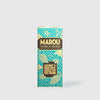
Loma Verde Washed & Santa Barbara Natural

The Santa Barbara Estate is a family-owned coffee company in Latin America, dedicated to the production and export of Colombian estate coffee. This month's subscription is a pair of coffees from two sister farms from this estate, namely Loma Verde and Agualinda. The coffee from Agualinda is referred to as Santa Barbara, as it comprises of a collective effort from all the sister farms under the estate.
The company's beginnings date back to the early 20th century, where Don Alejandro Angel established himself as one of the first major importers of Colombian coffee. Seeing the enormous potential for the crop, he opened new markets amongst the European and American traders, at a time when coffees from Colombia did not have the reputation that it now holds.
This legacy inspired Pedro Echavarria, the husband of one of Don Alejandro’s great grand-daughters, who ventured into coffee-growing three decades ago. One of the most important decisions when it comes to growing coffee is the location. Santa Barbara offers a microclimate with volcanic soils, perfect altitude, along with a picturesque view of the Andes mountains. Starting with a modest amount of land, Echavarria quickly grew his production capacity, expanding both the cultivation area and the farm’s reputation.

Today, Santa Barbara Estate is composed of 5 sister farms that lie across three neighbouring geographical regions - Santa Barbara, Fredonia and Amagá. Loma Verde, currently run by Pedro Echavarria and his son (also known as Pedro), is the one of the largest of the five farms under the estate, contributing about 17% of the total coffee production annually. This is where the first of this month’s coffees, the Colombia Loma Verde Washed, comes from.

This coffee starts off with hand-selected cherries, which are brought up to the highest part of the road using cable cars. From there, it is delivered to the family’s mill to begin processing. Each lot is comprised of two days’ worth of picking; the cherries picked on the second day are added to the first after 24 hours fermentation. The mix is left to ferment in the tanks for another 24 hours. This raises the ph level of the fermentation tank, which allows for longer fermentation times without the acetic acid that results from lower ph levels. Acetic acid in low concentrations may contribute to clean, sweet acidity, but excessive concentrations may result in vinegar-ish or over-fermented flavors.
As the estate has grown, so has their pursuit for innovation in processing methods. A few years ago, the team began experimenting with processing small lots using the natural method. After being hand-harvested and sorted, these coffees were first dried on raised beds under the shade, then spread thinly on screens encased in wooden boxes. They are regularly turned to ensure even drying. Thereafter, the cherries are moved out of the shade and dried under sunlight for 3 days until the correct moisture content, before being stored in silos for another 48-72 hours to rest.

Recently, all natural processing has been moved to Agualinda, the highest farm in the estate. The farm was named as such due to the many water sources and creeks in the area. This is where our second coffee, the Colombia Santa Barbara Natural comes in. We refer to this coffee to Santa Barbara, as the cherries processed here originate not just from Agualinda, but the 5 sister farms. This property also consists of the main house where they conduct business meetings and a new dormitory for the pickers.

Santa Barbara Estate employs 60 people all year round, who earn 30% above the minimum wage. Half of these staff also receive free lodging at the farm for themselves and their families. When the main harvest season arrives, an additional 1200 pickers are hired. In addition, the estate also runs an extensive scholarship program for the worker’s children, as well as helping workers acquire their very own piece of land upon retirement. These initiatives contribute to the sustainability of Santa Barbara Estate. It is no wonder that most of the workers are long-term employees, and have been with the company for over 10 years.
Now that you have read about your coffees, it's time to start brewing!
Let us know what you think about the coffees in your Surprise Box. Tag us at @ppp.coffee and hashtag #PPPCoffeeSurprise.
Not a subscriber? Join now and get two unique bags of coffees delivered to your doorstep for just SGD48 per month.









